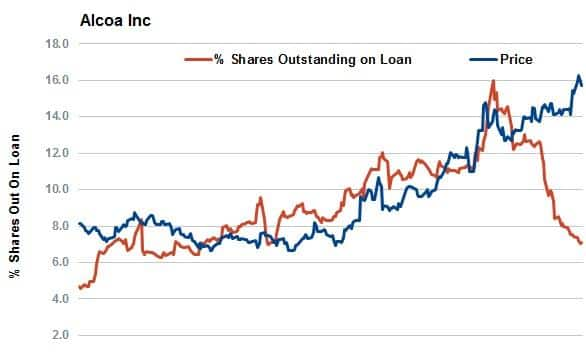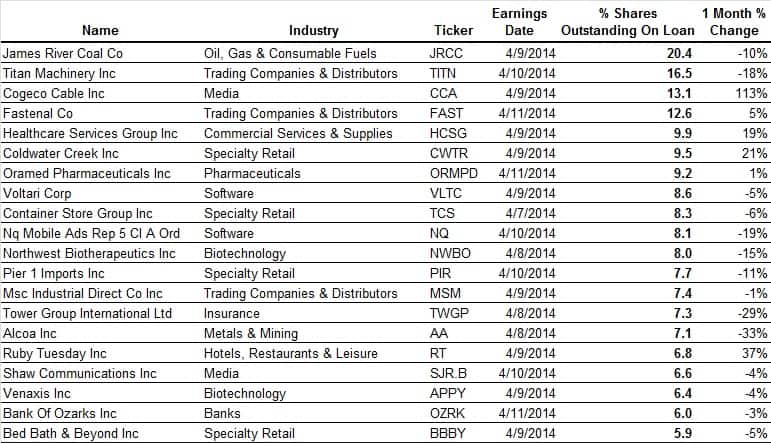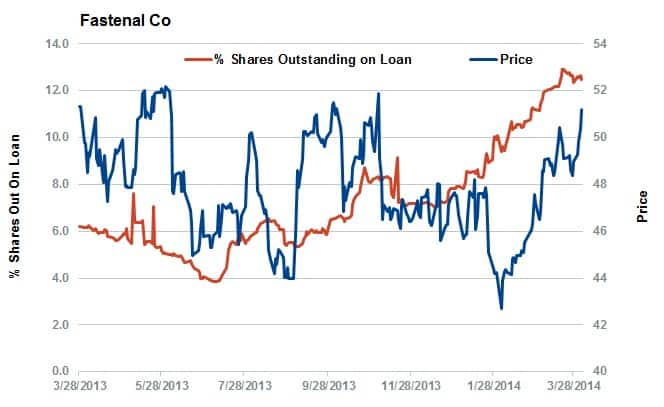Markets still in risk on mode

After a tenuous start to the year, investors have a renewed appetite for risk having returned to the trades favoured during the bull run of last year.
- US listed domestically exposed ETFs have seen $15.8Bn of inflows in March, snapping a two month outflow streak
- The consumer discretionary, banking and technology sectors are back in vogue, having incurred heavy negative sentiment in the first couple of month of the year.
- Shorts have pared back their positions from the highs seen in early March
The first two months of 2014 saw US investors trim their market exposure following the prolonged 2013 rally. With the S&P building further on February’s rebound, we look at how investors have changed their exposure over March to highlight that is certainly back on.
Equity ETFs rebound
The last four weeks have seen US investors regain their appetite for their domestic market. The 388 US listed domestically exposed funds saw over $15.8bn of inflows in March. This inflow saw these funds more than recoup the $14bn of outflows experienced in the first couple of months of the year and takes the total AUM to an all-time high $930bn.
Driving these inflows was a return to the broad based index investments that were last year’s favourite play. Size and style funds which include tracker funds, made up the bulk of inflows accounting for $12.5bn of the March total, recouping some of the $22.4bn of funds lost during the first two months of the year.
Interestingly, two leveraged index funds ranked among the five largest monthly inflows. Both the Proshares Ultra S&P 500 and Ultra Russell 2000 funds saw inflows greater that than $1.5bn after seeing investors pull out assets over the last six months.
Sector focus grows in popularity
Sector focused funds continued to attract new assets with $2.66bn of inflows. This marked the seventh month in a row that sector exposed funds saw net inflows.
These inflows were in part driven by the fact that many of the products that came under pressure during the first couple of months came back in vogue with investors.

Chief amongst these plays is the SPDR Consumer Discretionary Select Sector fund which had $410m of inflows in March, clawing back some of the $2bn of outflows it experienced over January/February when investors doubted the resilience of the US consumer.
Also seeing a reversal in investor sentiment is the Technology Select Sector SPDR Fund and SPDR S&P Regional Banking ETF. Both of these saw large inflows in March following strong redemptions over the first couple of months of the year.
Shorts also covering
Short seller are also showing signs of returning to last year’s risk on mode with the average short interest in the S&P 500 falling by nearly 3% to 2.2% after from the recent highs seen during the first week of March.

Driving this fall in demand to borrow are consumer discretionary constituents which have seen their average demand to borrow fall by 4% to 2.86% of shares outstanding.
While publishing company Gannett has seen the largest short covering in the sector, after posting better than expected results, the most interesting short reaction was seen in department stores, Nordstrom and Kohl’s which had both come under pressure from short sellers at the start of the year.
